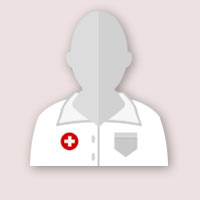Blood Coagulation Disorders
Coagulation is the process that allows blood to clot, thus preventing blood loss from a pierced or broken vein or artery. For blood to clot, the body needs blood cells called platelets and proteins known as clotting factors, all of which are normally present in the blood. The process also requires vitamin K, usually found in a healthy diet.
When a blood vessel is damaged, these substances combine to form a protective mesh which hardens over the cut to prevent leakage. There are two basic types of coagulation disorders, one in which the blood doesn't clot properly and one in which it clots too easily.
Hypocoagulation
Hypocoagulation is the condition that occurs when the blood doesn't clot normally. Left untreated, the disorder may lead to hemorrhage, bleeding on the brain or gastrointestinal bleeding. Conditions that may prevent blood from clotting normally are:
- Thrombocytopenia, or low platelet count
- Genetic diseases like hemophilia or von Willebrand disease
- Blood, bone marrow or liver disease
- Certain medications, like blood thinners
- Vitamin K deficiency
- Eclampsia, a complication of pregnancy
Symptoms of hypocoagulation may include unexplained bleeding or bruising, excessive bleeding from a minor injury, numerous nosebleeds, bleeding gums or excessive menstrual bleeding.
Hypercoagulation or Thrombophilia
Hypercoagulation may result in the formation of blood clots that block blood vessels. Such clots may occur after long periods of inactivity, as during plane travel or after surgery. Risk factors for hypercoagulation include:
- Hereditary predisposition
- Certain medications, such as birth control pills
- Certain cancers, like pancreatic, prostate, or breast
- Pregnancy
- Smoking
Abnormal blood clots result in minor symptoms like varicose veins, but left untreated can cause dangerous complications such as phlebitis, deep vein thrombosis, pulmonary embolism or stroke.
Additional Resources
- MedlinePlus
- National Institutes of Health
- Centers for Disease Control and Prevention
- Eunice Kennedy Shriver National Institute of Child Health and Human Development
- U.S. Department of Health & Human Services
- U.S. National Library of Medicine
- WebMD
Copyright © 2013 - 2025 Da Vinci Interactive Webservices, Inc.
All Rights Reserved.
Content presented on this website is for general information only. The healthcare provider | Charles Tilley NP | is not responsible for any content selection, or any errors, inconsistencies, or outdated information.
